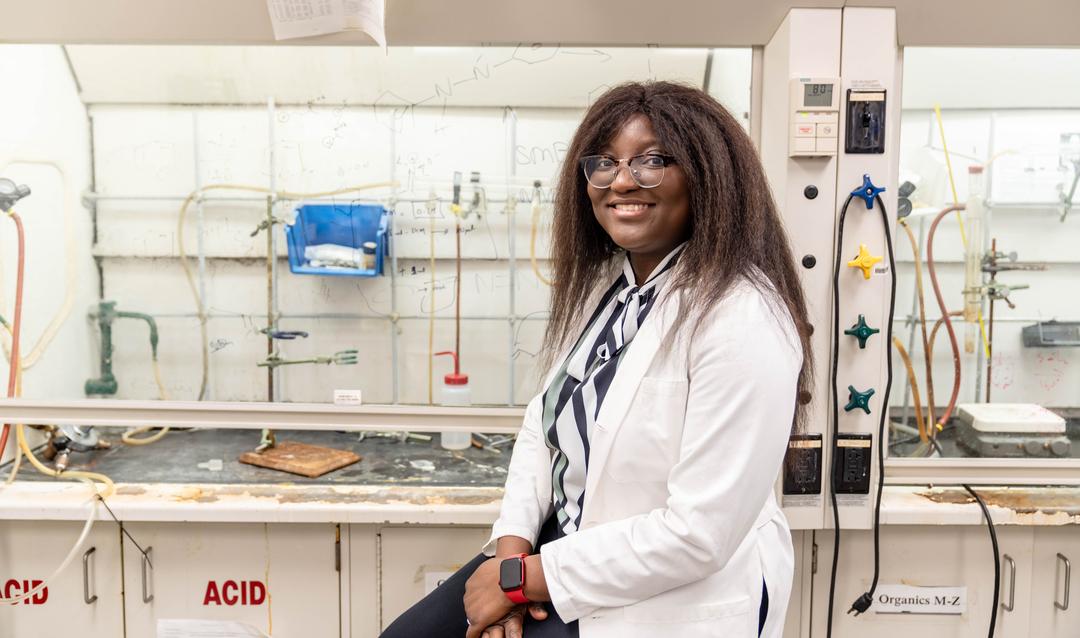In her native Nigeria, Ugochinyere Nancy Oloyede was an aspiring scientist who earned degrees in industrial chemistry from the University of Ibadan. But she wanted to expand her research and impact through graduate work in the U.S.
She followed the research to Lehigh, where she now works with Robert Flowers, the Herbert J. and Ann L. Siegel Dean of the College of Arts and Sciences and the Danser Distinguished Faculty Chair in Chemistry. A sixth year Ph. D. candidate in organic chemistry, Oloyede develops and studies metal-mediated reactions in chemical synthesis as part of the Flowers research group.
The metal used is titanium, a material that Oloyede explained is readily available, inexpensive, versatile and non-toxic. That makes it attractive as a catalyst in chemical reactions for the synthesis of compounds that are building blocks for therapeutic agents and luminescent dyes.
Catalyzing chemical reactions is important because it reduces the energy required to break and form chemical bonds to produce new combinations and substances. It also increases efficiencies in reactions, which reduces manufacturing costs and can accelerate product development and discovery. She explains that titanium catalysts are an alternative to more expensive and more toxic ruthenium and iridium catalysts.
“I wanted to work on something bigger, something that not just affects one part of the world but all of the world,” says Oloyede. “Part of this is looking for ways to better synthesize molecules that could be possible building blocks for antiviral drugs.”
Oloyede spends most days in the Mudd Building with her hands in an oxygen and moisture-free glove box trying new ways to trigger reactions.
“I’m the kind of person who tries to understand what’s going on in a reaction. That’s the kind of chemistry I gravitate toward,” says Oloyede. “At the same time, I’ve always wanted to look for ways to make the chemistry more affordable, greener and less toxic to the environment.”
Oloyede has been a part of a groundbreaking discovery.
In 2020, working with chemists at the University of Bonn, she and her colleagues developed a titanium catalyst that used, for the first time, energy from green light for selective chemical reactions. The scientists in Bonn investigated how the desired compounds could best be synthesized with the new catalyst. Oloyede and her colleagues carried out measurements to prove the reaction pathways. The results were published in Angewandte Chemie International Edition and featured in Science Daily.
Read about more of Lehigh's community of Future Makers here.
By Jodi Duckett





